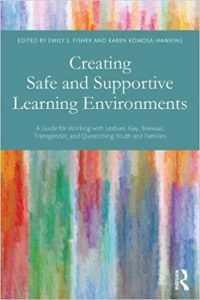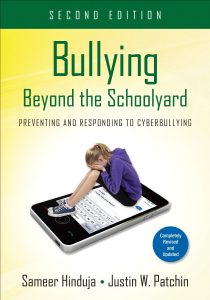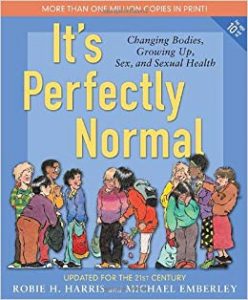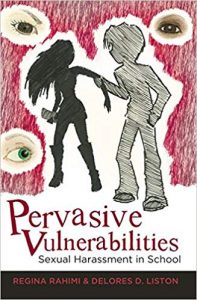***TRIGGER WARNING: This post includes reference to potentially triggering topics like physical and sexual violence***
While controversial, the changes introduced in the 2015 Ontario Health and Physical Education curriculum were an important step towards transforming Ontario schools into safe spaces. The sex ed component of the curriculum included information pertaining to safe sex, consent, cyber-bullying, sexuality and gender orientation and intimate partner violence, recognized the varied lived experiences of the diverse demographic of students of which the schools of Ontario serve, and helped the curriculum remain relevant for the 21st century. Consequently, the Ontario Provincial Government’s announcement in July of this year that the province would be reverting back the 1998 curriculum was a disappointment to many: the Elementary Teachers’ Federation of Ontario, for example, recently filed a court challenge over the rollback. Many view the decision as drastic and irresponsible, as it negates a curriculum that actively sought to ensure the safety of its most vulnerable students.
As these discussions unfold, the OISE Library continues to support our students and teacher candidates in their research and their studies. Regardless of the government’s decision, the library will continue to provide resources that support inclusive education, and that advocate for the safety and rights of students. This month’s lobby display highlights some of our resources that cover safe sex, consent, cyber-bullying, sexuality and gender orientation and intimate partner violence, and how teachers can effectively address these topics in the classroom.
OISE MT and MA CSE students are also encouraged to sign up for the Draw the Line workshop on Friday, September 21st. The workshop, provided by White Ribbon Ontario, will cover a number of these same topics.
 Acting as an extensive guide to knowledge pertaining to the LGBTQ+ community, Creating Safe and Supportive Environments: A Guide to Working with Lesbian, Gay, Bisexual, Transgender, and Question Youth, and Families offers a theoretical foundation from which to approach gender and sexual inclusivity within the classroom. Taking an academic approach to issues concerning the LGBTQ+ community, Fisher and Komosa-Hawkins have gathered a vast array of materials that offer an in-depth scope on a varied array of topics. Including materials that explore topics like adolescent development, varied diversity and law and ethics across the LGBTQ+ community, Creating Safe and Supportive Learning Environments is a great starting point when creating a foundation for a safe and inclusive classroom for the LGBTQ+ community.
Acting as an extensive guide to knowledge pertaining to the LGBTQ+ community, Creating Safe and Supportive Environments: A Guide to Working with Lesbian, Gay, Bisexual, Transgender, and Question Youth, and Families offers a theoretical foundation from which to approach gender and sexual inclusivity within the classroom. Taking an academic approach to issues concerning the LGBTQ+ community, Fisher and Komosa-Hawkins have gathered a vast array of materials that offer an in-depth scope on a varied array of topics. Including materials that explore topics like adolescent development, varied diversity and law and ethics across the LGBTQ+ community, Creating Safe and Supportive Learning Environments is a great starting point when creating a foundation for a safe and inclusive classroom for the LGBTQ+ community.
Impactful and provocative, ‘Intimate’ Violence against Women: When Spouses,  Partners, or Lovers Attack adopts a proactive approach when confronting the issue of intimate-partner violence that works to equip survivors with resources and knowledge that would help them or others in the case of violence. Exploring the effects that emotional, physical and sexual violence has on survivors, Lundberg-Love and Marmion use these materials in their efforts to educate the public about the effects intimate-partner violence has on class and culture, as well as the potential legal issues and potentially effective treatments for recovery. With the inclusion of safety recommendations and legal and advocacy resources for survivors, this item is crucial in its role in dispelling myths of intimate-partner violence and in advocating for the safety of survivors.
Partners, or Lovers Attack adopts a proactive approach when confronting the issue of intimate-partner violence that works to equip survivors with resources and knowledge that would help them or others in the case of violence. Exploring the effects that emotional, physical and sexual violence has on survivors, Lundberg-Love and Marmion use these materials in their efforts to educate the public about the effects intimate-partner violence has on class and culture, as well as the potential legal issues and potentially effective treatments for recovery. With the inclusion of safety recommendations and legal and advocacy resources for survivors, this item is crucial in its role in dispelling myths of intimate-partner violence and in advocating for the safety of survivors.
 One frequent critique of the curriculum rollback has focused on the 1998 curriculum’s failure to account for changing school environments in the digital age. While the digital era has granted many opportunities for progressive learning, it also has had many social implications that includes the rise of cyberbullying. In Bullying Beyond the Schoolyard: Preventing and Responding to Cyberbullying, Sameer Hinduja and Justin Patchin confront the presence, implications and consequences of cyberbullying. Featuring the voices of students who have experienced cyberbullying firsthand, this item offers realistic and informative practical strategies to combat and prevent the occurrence of cyberbullying.
One frequent critique of the curriculum rollback has focused on the 1998 curriculum’s failure to account for changing school environments in the digital age. While the digital era has granted many opportunities for progressive learning, it also has had many social implications that includes the rise of cyberbullying. In Bullying Beyond the Schoolyard: Preventing and Responding to Cyberbullying, Sameer Hinduja and Justin Patchin confront the presence, implications and consequences of cyberbullying. Featuring the voices of students who have experienced cyberbullying firsthand, this item offers realistic and informative practical strategies to combat and prevent the occurrence of cyberbullying.
In his book, It’s Perfectly Normal: A Book about Changing Bodies, Growing Up, Sex, and Sexual Health, Robie Harries explores the physical, psychological, emotional and social changes that occur during puberty in a progressive and inclusive manner. Promoting body and sex positivity by emphasizing that no body or experience of gender or sexuality should be othered, Harries offers an informed and enlightened perspective on sexual education when considering topics like sexual orientation, sexual reproduction, pregnancy, birth control, sexually transmitted diseases and sexual abuse. With its demonstrative and informative illustrations, It’s Perfectly Normal is an excellent resource that confronts the reality of sex and sexuality in a progressive tone, emphasizing the importance of including sexuality in health education.
Sexual Health, Robie Harries explores the physical, psychological, emotional and social changes that occur during puberty in a progressive and inclusive manner. Promoting body and sex positivity by emphasizing that no body or experience of gender or sexuality should be othered, Harries offers an informed and enlightened perspective on sexual education when considering topics like sexual orientation, sexual reproduction, pregnancy, birth control, sexually transmitted diseases and sexual abuse. With its demonstrative and informative illustrations, It’s Perfectly Normal is an excellent resource that confronts the reality of sex and sexuality in a progressive tone, emphasizing the importance of including sexuality in health education.
 An item that confronts the issue of sexual harassment in schools, Pervasive Vulnerabilities: Sexual Harassment in School seeks to uncover the source of its persistence by examining the beliefs, attitudes and behaviours of students and teachers. This item address the issue of sexual harassment in schools fourfold by exploring: the impact of harassment on women’s lives, how the perceptions that teachers hold over the adolescents they teach inform classroom culture, the young woman’s experience in middle and high school and the attitudes and beliefs held by young men in middle and high school. Exposing the perseverance of the double standard that holds men impermeable to reprimand for harassing women yet condemns women if they show interest in consensually participating in sexual acts, Pervasive Vulnerabilities is an excellent classroom resource that works to address and dismantle systems of behaviour that perpetuate sexual harassment and rape culture.
An item that confronts the issue of sexual harassment in schools, Pervasive Vulnerabilities: Sexual Harassment in School seeks to uncover the source of its persistence by examining the beliefs, attitudes and behaviours of students and teachers. This item address the issue of sexual harassment in schools fourfold by exploring: the impact of harassment on women’s lives, how the perceptions that teachers hold over the adolescents they teach inform classroom culture, the young woman’s experience in middle and high school and the attitudes and beliefs held by young men in middle and high school. Exposing the perseverance of the double standard that holds men impermeable to reprimand for harassing women yet condemns women if they show interest in consensually participating in sexual acts, Pervasive Vulnerabilities is an excellent classroom resource that works to address and dismantle systems of behaviour that perpetuate sexual harassment and rape culture.
For these and more books that will help to fill the gap of the new Health and Physical Education curriculum, visit the Lobby Display on the ground floor of the OISE building. Please feel free to take out the materials found in the lobby display—library staff would be happy to take these out for you.
